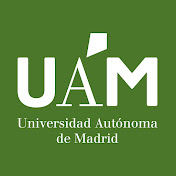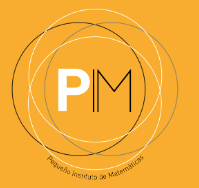Investigación
Noticias Destacadas
 Agenda del Departamento Agenda del Departamento |
- Información (provisional) sobre grupos y horarios de las asignaturas impartidas por el Departamento de Matemáticas, para el curso 2023-2024.
- Propuestas de Trabajos de Fin de Grado para el curso 2023-2024.
|
Canal @matematicasuamEnlace al canal del Departamento en youtube. |
PIM (Pequeño Instituto de Matemáticas)Con el objetivo de fomentar el interés por las matemáticas y dirigido a jóvenes entre 14 y 18 años, nace este proyecto de Instituto de Ciencias Matemáticas (ICMAT) en colaboración con nuestro Departamento, la Universidad Autónoma de Madrid y la Real Sociedad Matemática Española. El proyecto comienzó en el curso académico 2022-2023. Ampliar información en su página web. |
Machine learning in Madrid
Lunes, 24 de octubre de 2022, 15-16h
Ponente: Nan Wu (The University of Texas at Dallas)
Título: Inferring manifolds from noisy data using Gaussian processes
Abstract: We focus on the study of a noisy data set sampled around an unknown Riemannian submanifold of a high-dimensional space. Most existing manifold learning algorithms replace the original data with lower dimensional coordinates without providing an estimate of the manifold in the observation space or using the manifold to denoise the original data. We propose a Manifold reconstruction via Gaussian processes (MrGap) algorithm for addressing these problems, allowing interpolation of the estimated manifold between fitted data points. The proposed approach is motivated by novel theoretical properties of local covariance matrices constructed from noisy samples on a manifold. Our results enable us to turn a global manifold reconstruction problem into a local regression problem, allowing the application of Gaussian processes for probabilistic manifold reconstruction. In this talk, I will review the classical manifold learning algorithms and discuss the theoretical foundation of the new method, MrGap. Simulated and real data examples will be provided to illustrate the performance. This talk is based on the joint work with David Dunson.
Enlace: https://us06web.zoom.us/j/87956571923






